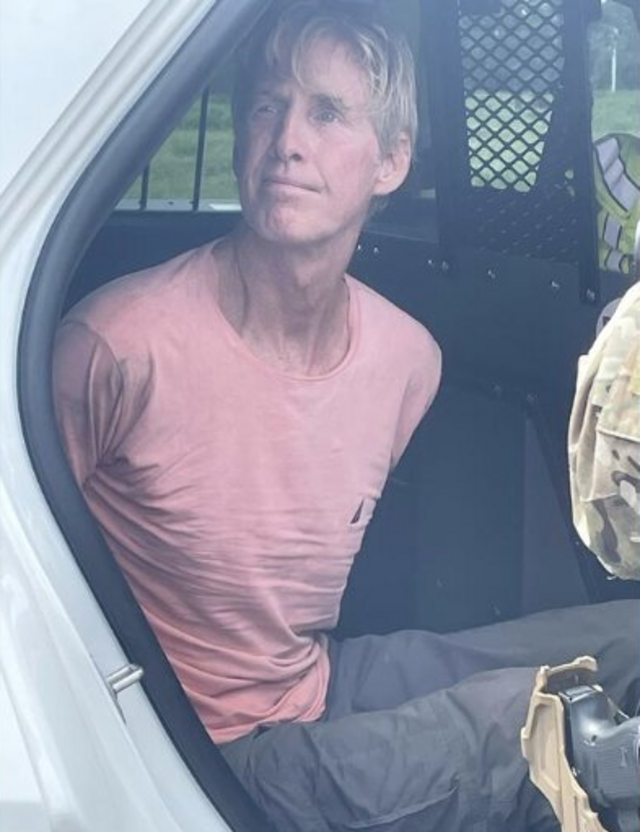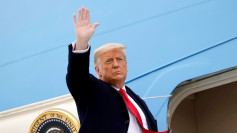Ryan Wesley Routh, the man accused of attempting to assassinate former President Donald Trump, pleaded not guilty on Monday to a range of serious federal charges in a West Palm Beach, Florida, courtroom. The charges include attempted assassination of a major presidential candidate, assault on a federal officer, and various gun-related crimes. Routh's plea, made through his public defenders, sets the stage for a highly anticipated jury trial.
Magistrate Judge Bruce Reinhart presided over the proceedings, where Routh, wearing a tan prison jumpsuit and shackled, confirmed that he understood the charges against him. When asked if he comprehended the gravity of the accusations, Routh replied, "Yes, your honor." His legal team opted not to have the indictment read aloud in court. The defendant, who appeared focused, motioned for something to write on and briefly acknowledged the courtroom sketch artist with a nod.
Routh's alleged actions, described as a meticulously planned assassination attempt, have generated significant attention. According to prosecutors, the 29-year-old stalked Trump's Florida properties, including the Mar-a-Lago estate and the Trump International Golf Club in West Palm Beach, for several weeks. His alleged plan culminated on September 15, when he reportedly positioned himself near the sixth hole of Trump's golf course with a Soviet-designed rifle, waiting for the perfect moment to strike. A Secret Service agent conducting surveillance detected the rifle barrel and fired at Routh, prompting him to flee the scene. He was arrested less than an hour later on a nearby highway.
The federal case against Routh has grown increasingly complex. In addition to the attempted assassination charge, Routh faces multiple counts related to illegal firearm possession. Court records show that Routh had previously been charged with possessing a firearm with a scratched-off serial number, a violation of federal law, and possessing a gun as a convicted felon. These charges were initially the focus of his case, but the attempted assassination charges now take precedence as the primary legal battle.
Federal prosecutors allege that Routh's motivations may have been political. They cited a letter he allegedly left with a witness, in which he described his failed attempt to kill Trump and urged others to complete the job, offering $150,000 as an incentive. The letter reportedly included criticisms of Trump's foreign policy, particularly his decision to withdraw from the Iran nuclear deal, and suggested that Routh believed the former president's actions had destabilized the Middle East.
Routh's criminal record is extensive, with prosecutors revealing that he has been arrested over 100 times, mostly for minor offenses like traffic violations. However, his recent international travel to Ukraine and Taiwan has raised additional concerns, particularly regarding his ability to cross borders undetected. This detail was highlighted during a previous detention hearing, where federal prosecutors successfully argued that Routh posed a significant flight risk, leading to the court's decision to keep him in custody without bail.
The legal proceedings are unfolding in a politically charged atmosphere, especially given that Routh's case has been assigned to Judge Aileen Cannon. Cannon previously made headlines for dismissing criminal charges against Trump related to classified documents. Although the two cases are unrelated, the overlap in figures has drawn heightened scrutiny from both legal experts and the public.
Routh's trial will likely center around the wealth of evidence prosecutors have presented, including the rifle he allegedly used, surveillance footage from Trump's properties, and the damning letter detailing his intent to assassinate the former president. The defense will have to navigate an uphill battle, especially given the apparent premeditation and Routh's significant criminal history.
Trump has not publicly commented on the assassination attempt, and his campaign continues without disruption. However, the incident underscores the security risks faced by high-profile political figures, particularly as the 2024 presidential campaign intensifies. Trump's rallies and public appearances remain a focal point of his bid for re-election, and the Secret Service has likely increased its vigilance following the close call.
Routh's case has also raised questions about how such an elaborate plot could unfold over several weeks without being detected sooner. As more details emerge, there may be calls for stricter security protocols surrounding political figures, especially in the lead-up to elections. Routh's trial, which will unfold in federal court, is expected to be closely monitored, not only because of the severity of the charges but also due to the broader implications for political security.
The court has not yet set a trial date, but the proceedings are expected to be highly publicized. Routh remains in federal custody, with no possibility of release before trial.






